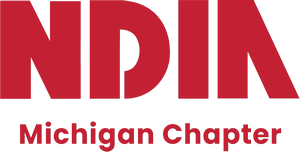
16th Annual GVSETS Technical Sessions
Technical Session Presentation Day: August 13, 2024
Registration, Exhibits, and Sponsorships are Open
Digitizing the Army to Enable Formations Today and Tomorrow
The Technical Sessions serve as a forum to bring members of government, academia, and industry together to discuss and collaborate in various technical areas of mutual interest. The focus of the 2024 GVSETS is Digitizing the Army to Enable Formations Today and Tomorrow.
PAPER ACCEPTANCE NOTIFICATION
Sent by May 3, 2024
Authors of papers chosen by the Technical Committee will be notified by e-mail to the main point of contact listed on the submission form and provided detailed directions for formatting final manuscripts. Accepted authors must submit a complete manuscript, which includes acquiring OPSEC approval, by the deadline prior to the conference. Authors selected to present their papers during the GVSETS Technical Sessions will also receive detailed information regarding presentation format.
Important Dates to Remember:
- June 10, 2024 - Final paper submission *
- August 1, 2024 - Final presentations due *
- August 13, 2024 - Paper Presentation
* This timetable does not include time for OPSEC review which is required by all government authored/funded papers. Please allow a minimum of two weeks for OPSEC process prior to submission dates.
ALL ATTENDING PAPER AUTHORS ARE RESPONSIBLE FOR THEIR OWN REGISTRATION FEE.
KEEP IN MIND, GOVERNMENT ATTENDEES ARE FREE.
Autonomy, Artificial Intelligence, & Robotics (AAIR): The AAIR Technical Session is primarily focused on practical demonstrations of robotic systems, AI algorithms, and autonomous behaviors. Particularly promising projects that present a clear path towards prototyping and demonstration are also of interest, as is theoretical work that offers significant improvements in robotic performance. Topics of interest include, but are limited to:
- Autonomous and operator-assisted operation of robotic assets, especially in challenging terrain and in the presence of hostile elements
- Robotic system design for reconnaissance, resupply, combat, and engineering
- Counter-robotic and counter-swarm defenses
- Novel sensors and multimodal sensing integration
Digital Engineering/Systems Engineering (DE/SE): The DE/SE Technical Session provides a technical forum for the exchange of transformative ideas, approaches, techniques, applications, and lessons learned in the Digital Engineering/Systems Engineering of ground vehicles. The session will facilitate learning more about the most recent innovations, trends, experiences, and challenges in DE/SE. Topics of interest include, but not limited to:
- DE/SE in support of multi-domain operations and formations/cross functional teams
- Digital Engineering / Model Based System Engineering (MBSE) & Architecture
- Application of DE/SE practices in current defense programs
- Trade space & decision analysis
- DE/SE advanced tools and practices
Modeling, Simulation, Prototyping & Validation (MSPV): The MSPV Technical Session covers both the development of advanced and novel MSPV technologies, as well as the application of existing technologies to military vehicles. This technical session will highlight current developments in MSPV technology and discuss gaps and challenges in the MSPV application domains. Topics of interest include, but not limited to:
- System-level M&S
- Physics-based M&S
- Testing, verification, validation, and accreditation
- Data analysis and modeling
- Human/hardware-in-the-loop M&S and virtual experimentation
- Physical and virtual concepting & prototyping
- VR/AR/MR/XR based simulation
- AI/ML/LLMs used in M&S
- M&S automation/running at scale
Modular Open Systems Approach (MOSA): The MOSA technical session will explore the latest advancements in Modular Open Systems Approaches (MOSA), a game-changer for the Ground Vehicle Community. This session showcases MOSA's potential to drive innovation, competition, and cross-platform operability. Topics of interest include, but not limited to:
- System & Software Architectures
- In-vehicle Networks & Onboard Computing
- Onboard high-performance computing
- Safety & Mission Critical Systems
- Onboard Video & Sensor Systems
- Command, Control, Communications, Computers, Cyber (C5) Intelligence, Surveillance, and Reconnaissance (ISR) (C5ISR) systems
Furthermore, as vehicles and their mission-critical systems grow increasingly reliant on software, they also become potential targets. It's paramount to fortify our cyber defenses, especially in the age of the Internet of Battlefield Things (IoBT). We'll also delve into:
- Zero Trust Architecture Principles
- Secure Data Communication & Authentication
- Defenses against Supply Chain Vulnerabilities
Power and Mobility (P&M): The P&M technical session covers both research and development of various technologies and application of such technologies to specific military vehicles. This technical session will highlight current developments in P&M technology and discuss gaps and challenges in the P&M application domains. Topics of interest include, but not limited to:
- Vehicle electrification including motors, generators, energy storage devices, power electronics, and high voltage architectures under high temperature conditions
- Hybrid electric and electric drive propulsion systems
- Advanced running gear systems
- Advanced power generation and power transmission technology including mechanical and non-mechanical systems.
- Alternative military fuels and power sources
Open & New Topics: New for 2024, an open topic session allows researchers to submit papers on emerging, new, or specialized topics to expand GVSETS’s coverage of new technology and research. Papers will be considered that contribute towards advancing knowledge, technology, or approaches to enhance warfighter capabilities, capability gap solutions, and understanding of future challenges. Areas of particular interest include:
- Contested Logistics, such as predictive logistics models and approaches, in-transit and asset visibility, and precision, autonomous, and small-lot distribution, including watercraft
- Advanced Manufacturing, such as materials joining technologies, quality assurance techniques, affordable/attritable designs, and challenges related to manufacture of military vehicles and systems
- Additive Materials, such as new technologies, design methods, standards, qualification, and quality assurance methods
- Predictive and Preventative Maintenance, such as sensors, analytic approaches, data management, and fleet management technology
- Biomanufacturing, such as structural materials, polymers, and composites, and vehicle fuels, oils and lubricants
- Demand Reduction, including water treatment and atmospheric water extraction
